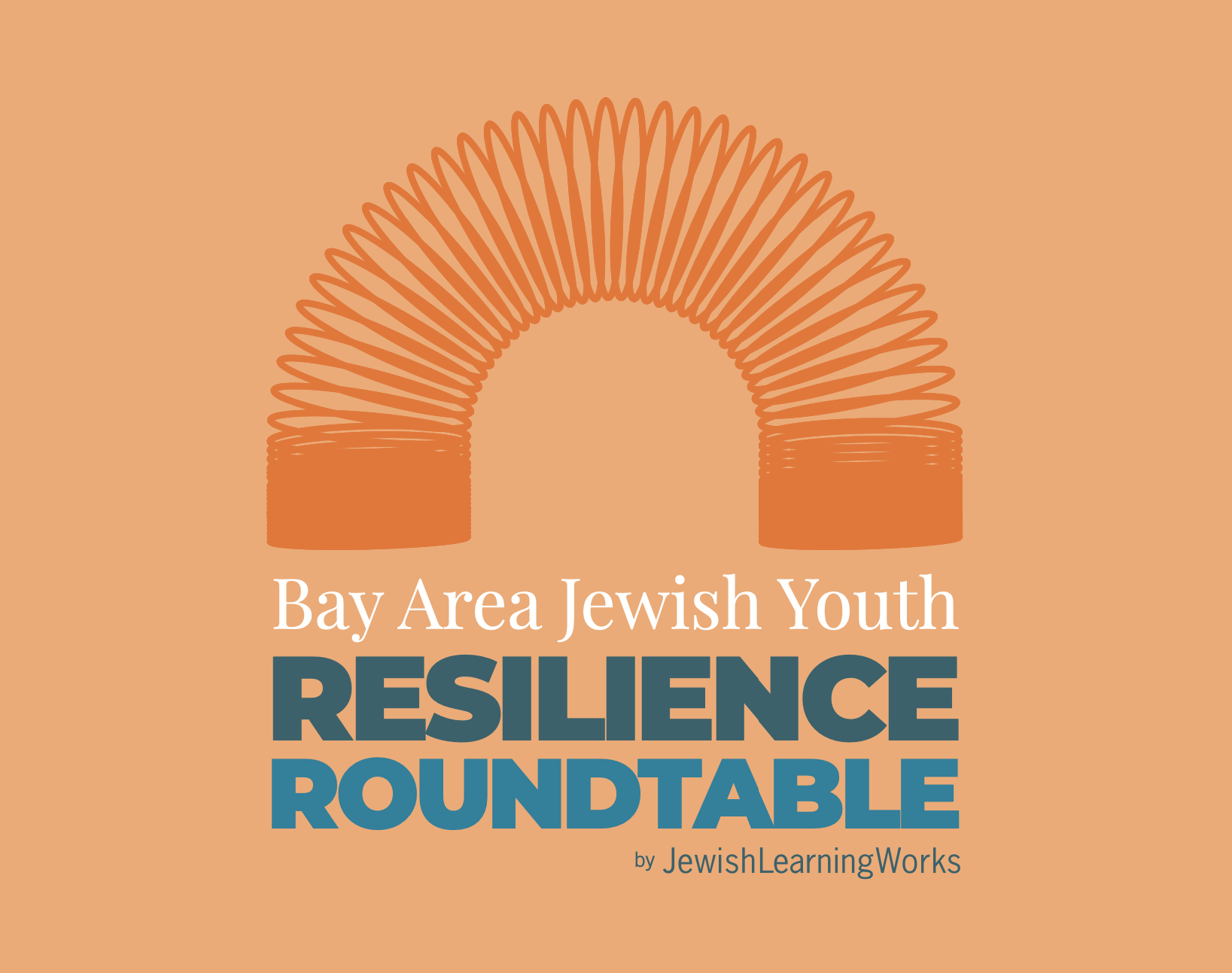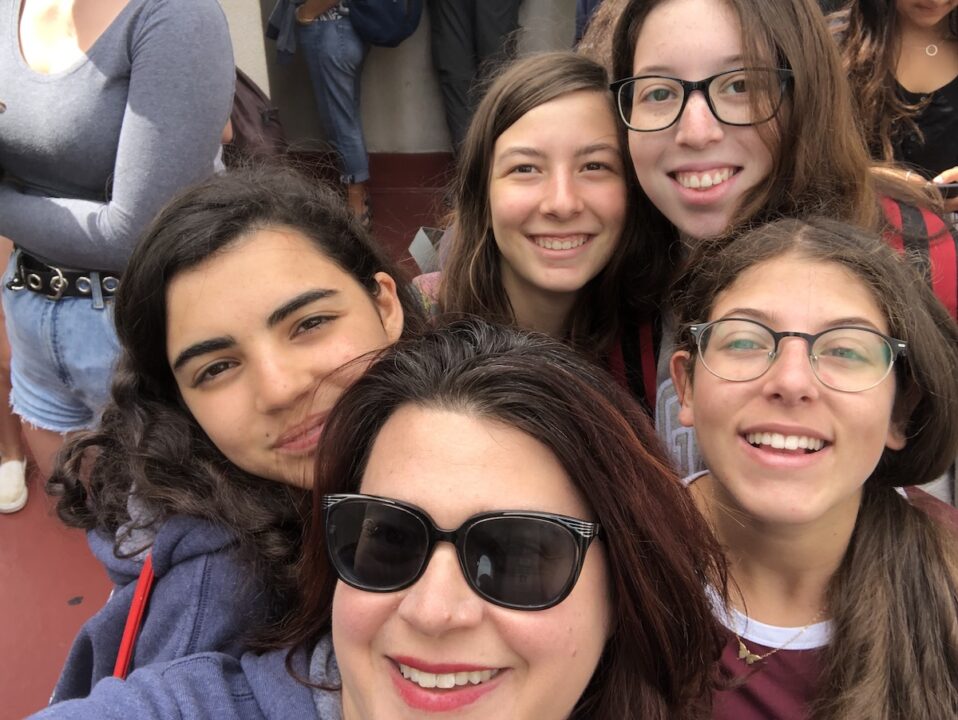By Alisha Pedowitz, Jewish LearningWorks’ Senior Educator
More than 20 years ago, after graduating college, I worked in a residential treatment program for youth who were being treated for severe emotional disturbances–most of whom had experienced multiple adverse childhood experiences, or ACES. My plan was to eventually apply for social work programs in order to work with young people who had experienced adverse and traumatic experiences in their lives and help support them to thrive. I was motivated by my own experiences in childhood and adolescence, and felt myself lucky to have come through personal trauma and to be in a place in my life where I was flourishing. I wondered what the factors were that allowed me to do so, and wanted to be able to help cultivate those for other young people. I now understand that what I was interested in is a very relevant topic in today’s landscape of adolescent wellbeing: what cultivates resilience in the wake of adversity?
While it was the work I wanted to be doing, I found myself struggling and wondered if I was ready to do this type of work–but I also wondered what my path would be from there since this is what I had hoped to do for a career. I realized that Jewish camp had been the environment where I had found joy, meaning, and connections within a vibrant Jewish community at a time in my life where I needed it most. It served as a positive and meaningful counterbalance that added to my sense of self and inner purpose. I realized that experience was critical in my journey–and that every young person benefited from experiences like this. That was the beginning of my career in experiential Jewish education, which eventually led me to focusing for many years on adolescence and on providing Jewish experiences that bring joy, meaning, and connection to young people at a critical time in their development. It was a convergence of my own experiences that has brought me to my work as a Jewish educator who sits at the intersection of adolescent wellness and Jewish education.
This is an intersection that I am not alone or unique in sitting in. Jewish educators who work with adolescents have been responding to the current crisis in mental health by doubling down on the positive, meaningful counterbalances that our programs have always provided. And, we have watched as research has given us better language to speak about what we already do, and information to improve and maximize its benefits. The Harvard Resilience Study identified a common set of factors that predispose young people to positive outcomes in the face of adversity, calling them “counterbalancing” positive influences that help stack the scales for resilience. Perhaps not coincidentally, these factors weave throughout Jewish educational and engagement programs for adolescents. Groundbreaking research by Dr. Lisa Miller, a neuroscientist and psychologist at Columbia University, provides evidence that spirituality is neuroprotective against depression (i.e., helps strengthen the areas of the brain that make the brain itself more resilient). And her definition of “spirituality” and what we can do to cultivate it overlaps with the experiences that are essential to Jewish programs that connect youth to Judaism as a source of meaning, hope, and connection.
As Jewish educators, we know that our collective Jewish story is itself one of resilience–of a people who time and again face challenges, and who look deep within the stories of where we have been to find ways to strengthen ourselves and flourish as we go forward. To paraphrase Rabbi Jonathan Sacks’ (z’’l) commentary on Exodus 3, Moses’ first encounter with God in the burning bush: Moses first responds to God’s call with “hineni/here I am,” a statement of presence, only to immediately follow it with “mi anochi/who am I?” when he hears what God wants of him: to lead the Israelites out of Egypt to freedom. While on the surface this question appears to be (and is commonly interpreted as) a statement of humility–”how am I the one worthy to do this?”–Rabbi Sacks suggests there is a far more reflective and existential layer to this. Instead, we can imagine Moses asking himself, “what aspect of my identity, what story of who I am and how I understand myself, will I draw from in order to fulfill the call and proclaim hineni/here I am to do this task? Am I the Prince of Egypt I grew up believing myself to be? Am I myself an Israelite slave, who has found freedom and can now lead others like me to it? How does being someone who sits uniquely at the intersection of those two stories allow me to draw from both and respond to this call?”
Jewish LearningWorks is answering this call as we launch a Bay Area Jewish Youth Resilience Roundtable this fall. Together with stakeholder organizations and educators, we will draw from the wisdom of our tradition–the story of who we are–and from current research in adolescent development, to rise with a strong hineni and strengthen the intersection of Jewish education and adolescent well-being.
Bay Area Jewish Youth Resilience Roundtable

This summer, organizations in the Bay Area with programs that serve Jewish adolescents* will be invited to join the Youth Resilience Roundtable, and send representatives to our monthly meetings, where we will build a learning network for Jewish communal stakeholders invested in Jewish educational and engagement opportunities for adolescents.
You may also contact Alisha Pedowitz, Senior Educator, at alisha@jewishlearning.works to learn more.
*Jewish LearningWorks defines adolescence in its broadest, most inclusive sense (WHO defines it as the phase of life between childhood and adulthood, approximately ages 10 – 19).



